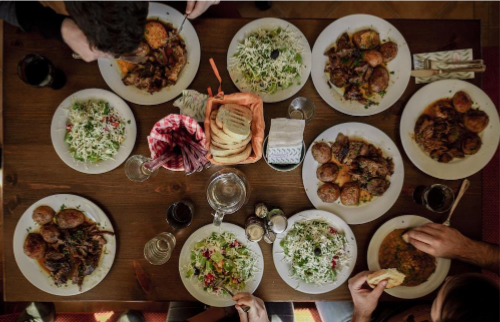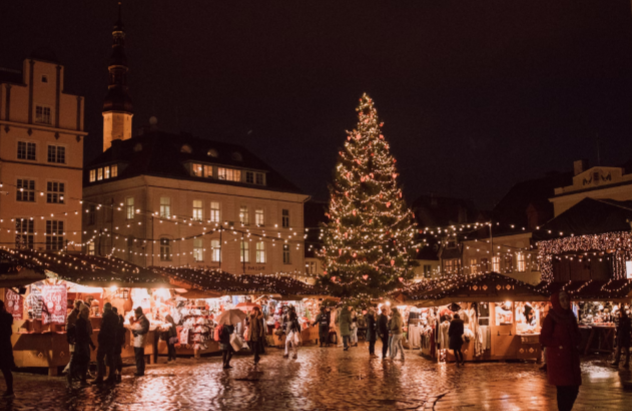What do beach parties, Nochebuena, plus lots of lights and trees on boats all have in common? These are traditions for Christmas in Greece, Australia, and the Philippines. While we typically put a tree in our living room and wait for Santa to deliver presents on December 25, other countries celebrate differently.
While most Americans hope for snow and to witness a White Christmas during the winter holiday season, people in Australia celebrate with outdoor barbecues since their Christmas falls during their summer weather. Another country that has different Christmas traditions is Greece. Their holiday tradition came from King Otto, who put up the first Christmas tree next to a large decorated boat. Cities in Greece have extended that tradition to further generations. In the Philippines, they spend their Christmas time seriously as they go to mass and later feast and dance. Their lights plus decorations are a huge part of the holiday as well. Even though all of these countries celebrate Christmas, they each do so in a unique way.
Throughout Australia, they have many traditions, including the gifts they give, the food they eat, and several events they host or attend. Australians usually have lunches or dinners with close friends and family with cold and hot food. The summer weather does not stop them from eating roast turkeys and pudding on this special day. In addition, the gifts they give and receive are similar to ours. They like to attend Secret Santa’s to provide each other cash. Furthermore, they attend a number of events throughout different cities. Brisbane has a huge Christmas tree for people to look at. In Perth, people participate in the Burswood Christmas carols and markets. In Perth, many people enjoy listening to music and doing Christmas shopping if they haven’t done it yet.
Similarly to Australia, Greece has many different celebrations, including how they exchange gifts, the food they bake, and singing the kalanta (a popular tradition in Greece when kids sing carols). As Christmas arrives, the Greeks gather the gifts they will give out just like we do. However, since the Christmas holiday season lasts until January 6, most Greeks give their gifts to loved ones on January 1, St. Basil Day. Furthermore, the Greeks like to bake cookies for the holiday since they love baked treats. When they sell these cookies, they become their food group due to their love of them. After
singing and hoping for a great Christmas holiday, the children are rewarded with sweet treats for
their actions.
Lastly, in the Philippines, they celebrate several creative traditions throughout the Christmas season. First off, they attend the Simbang Gabi, which is multiple late-night masses, which are held nine nights before December 25. However, the most important mass out of those nine nights is the last one, which is held on Christmas Eve. Secondly, they have red envelopes to open, or they are called ang pao. Their grandparents or “aunties” give the children blue or red envelopes filled with money. If any children receive a big blue envelope, they must remember to be thankful to their aunts or grandparents for the upcoming year.
Australia, Greece, and the Philippines have special holiday traditions and celebrations unique to their cultures. Depending on where you live could affect the way you celebrate holidays in many unique ways. Looking at these three countries really showcases the similarities and differences between how everyone celebrates the holidays.






















